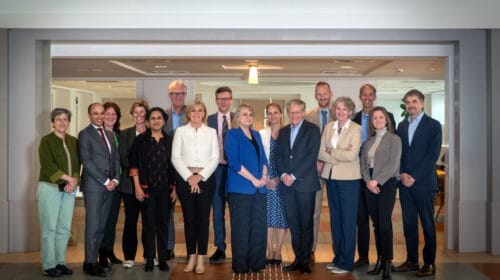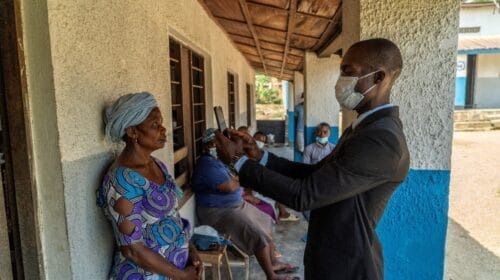Security Agents, Demoralising Nigerian Youths
It has become a daily routine for security agents to harass Nigerians, particularly the youths, under the guise of law enforcement. Nigerian youths are intimidated, extorted, arrested illegally, arbitrarily detained and even killed extra-judicially.
This unfortunate development has been perpetrated by the regular security agents like the police and perhaps the military for a long time. But of recent, it seems the Economic and Financial Crimes Commission (EFCC) and some other paramilitary organisations have entered the fray.
In Ibadan, Oyo State, EFCC operatives, using crude force, sacked the patrons of a nightclub in a bravado style. This action caused so much concern that there would almost have been reprisals from the public. Law enforcement is a given globally, but the manner security agents in this country go about it leaves much to be desired.
In the case of Club 360, the aforementioned nightclub, EFCC officials invaded the building at midnight and ransacked it thoroughly, subjecting those present, especially youths, to a crude and humiliating treatment. Vehicles, phones and laptops were confiscated. In all, about 89 persons were arrested.
By every given standard, this seems an unusual way to enforce the law. It is harassment. Granted there could be some suspected fraudsters at the location, but what about the innocent among them? Should they have been manhandled and treated badly as well? In civilised climes, law enforcement is intelligence-driven and, therefore, excludes all forms of over-drive by security agents.
Although the EFCC has the responsibility to check and prevent financial crimes, their dramatic incursion into nightclubs and entertainment homes on the allegation of harbouring internet fraudsters may amount to using a gun to kill a mosquito. The outcome is usually unintended, one of which is to discourage investments and businesses.
When people lack trust in their security apparatuses, they tend to recoil from society in apparent disgust and blend with their social class, tribe or religion and do businesses in ways that benefit only them and their families, not society or the nation. This is dangerous because of its negative economic implications.
Harassment of innocent and young Nigerians by security agents, notably in the services sector, will certainly harm the economy if not checked. First, the nation’s economy is a weak and struggling one which is being diversified from the hitherto oil monopoly we have always had.
Since Nigerians, especially at services centres, have become vulnerable to attacks, unwarranted arrests and detention, they will customarily be wary of patronising services-based businesses like restaurants, nightclubs, entertainment enterprises, among others.
In the United Kingdom (UK), for instance, statistics revealed that out of the four areas of the economy (services, manufacturing, construction, and tourism), services alone contributed about $2.65 trillion which amounted to over 80 per cent GDP in 2016. These services included retail, food and beverage, and entertainment. That is how significant the services sector of a nation’s economy could be if properly harnessed.
But in Nigeria, rather than encourage services providers, security agents, under the pretext of law enforcement, often invade and humiliate them, most times unjustifiably. What foresight or tangible benefits are there to be derived from such precipitate action?
Similarly, EFCC officers stormed a nightclub in Osogbo, Osun State, in October 2019. At the end of their operation, they arrested suspected 94 Yahoo Yahoo boys on an allegation that they had turned the place into a den of internet fraudsters. The EFCC had also carried out mass arrests of youths in similar operations in Enugu, Uyo, Aba and Lagos. Sadly, such clubs are usually unable to recover from these invasions.
In a popular case, the EFCC arrested a musician, Naira Marley (real name Afeez Fashola), allegedly for singing songs that glorified internet fraud. Is that not baffling? By their legal roles, the Nigerian Communications Commission and the Nigerian Copyright Council, as regulators, are in charge of this field, yet the EFCC intruded by taking over their functions.
The many untoward activities of the anti-graft agency are responsible for the crude state of the organisation. Twenty years into the Fourth Republic, they are yet to imbibe the basics of law enforcement in a democratic setting. Isn’t that too long a time to adjust to the present reality as against the brutal days of military dictatorship?
Besides the EFCC, the youth have other security agencies to contend with. Those among them who drive expensive cars, use iPhones, laptops and technological gadgets are repeatedly hounded by the police and the military. At a time in 2017, the molestation was so much that some young Nigerians founded the hashtag, #EndSARS.
The #EndSARS demotic movement was incensed by the human rights abuses such as arrests, extortion and detention of the youth by the police. As a result, the police high command in Abuja promised to rehabilitate the Special Anti-Robbery Squad (SARS). Whether that was done or not is yet to be seen.
While that was going on, the police renewed their abuses when a policeman killed Kolade Johnson at a TV viewing centre in Lagos last April in his desperation to arrest young men and women wearing dreadlocks and “sagging” trousers. For wearing tattoos, the military descended on some youths in Aba last year, arresting and torturing them.
Just in December last year, some police officers attached to the Eagle Crack Unit in the Rivers State Command allegedly tortured a motor mechanic, Ikwunado Chima, to death on allegations of being a secret cult member and a robber. At random, officers stop vehicles and arrest young people for flimsy reasons, apparently with the intent to extort money from them.
It is wrong to assume that every young person is a criminal and therefore deserves to be treated as such. Law enforcement agents, especially the police, variously rob young Nigerians by compelling them at gunpoint to transfer monies into their accounts electronically. Girls are not exempted as sometimes they are indecently assaulted by security agents.
Is it a crime to be a youth in Nigeria? Nigerian youths already have enough in their kitty. Unlike other climes where young people are entitled to many benefits, in Nigeria, they are deprived of every good thing. No jobs, no quality health care, no good education, and above all, no future. Indeed, youths in this country are in the most precarious state.
Therefore, security agents shouldn’t add to their misery. Their rights should not be violated on account of where they go to have relaxation or fun and what they put on. If they violate the law, they have to be accosted with civility, not in a gangsterish manner.
By: Arnold Alalibo




